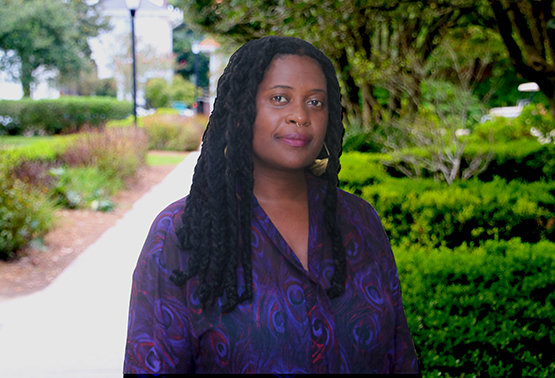10/4/2017
Representations of African Gender and Sexualities

“I feel strongly that interdisciplinary programs such as Africana Studies and Gender and Sexuality are central sites for producing cutting-edge research, crucial conversations, and institutional change,” says the Michael S. Field Assistant Professor in Liberal Arts, Z’étoile Imma, a literary scholar who studies representations of African gender and sexualities in a broad set of texts including African fiction, film, letters, newspapers, photographs, and digital media. She is currently writing about how queer South African activists create erotic epistemologies through poetry, epistolary correspondence, movement literature, and visual culture. As an academic trained in Black studies, she is invested in producing a scholarship that centers African and African Diasporic theory, reimagines postcolonial archives, and decolonizes knowledge production.
Imma’s short-term goals include the publication of her manuscript Our Queer Mandela: Simon Nkoli, the Archive, and the Uses of an African Queer Icon and making deeper and more visible research and service contributions to her fields. “Specifically, at Tulane University, I hope to participate in creating a more just, inclusive, robust, and dynamic intellectual community. Given the complicated legacies of slavery and continued racialized disfranchisement that we encounter in New Orleans, I'd especially like to work towards building a more vibrant and expansively supported Africana Studies program at Tulane. My professorship made the offer to join the wonderful faculty at Tulane stand out among other opportunities. It made it possible for me to envision my success here at Tulane with an equal touch of realism and excitement. My research is driven by my access to international archives and connections to African-based communities. My professorship facilitates this travel to and engagement with these crucial spaces. I don’t take that support for granted!”

